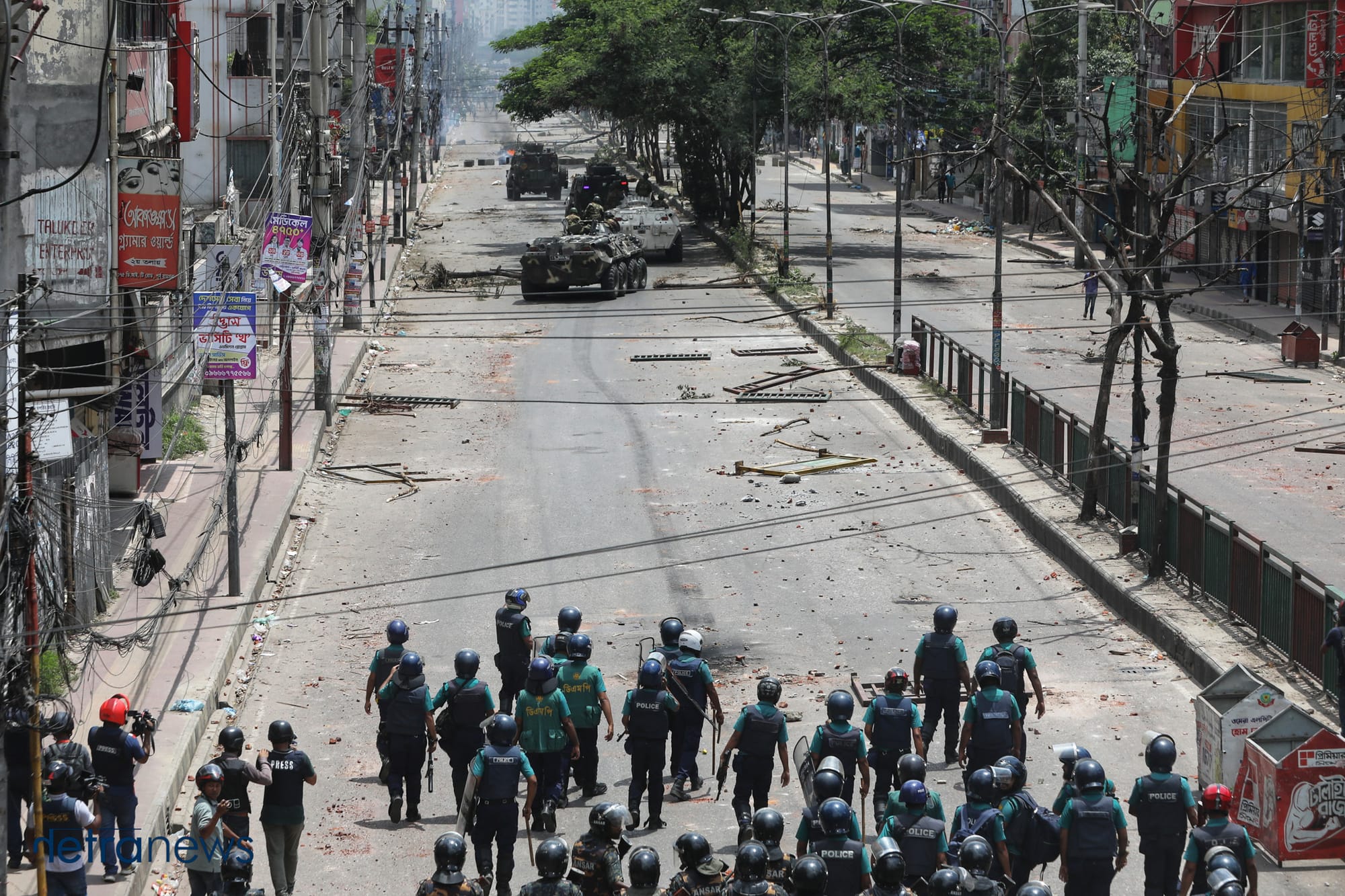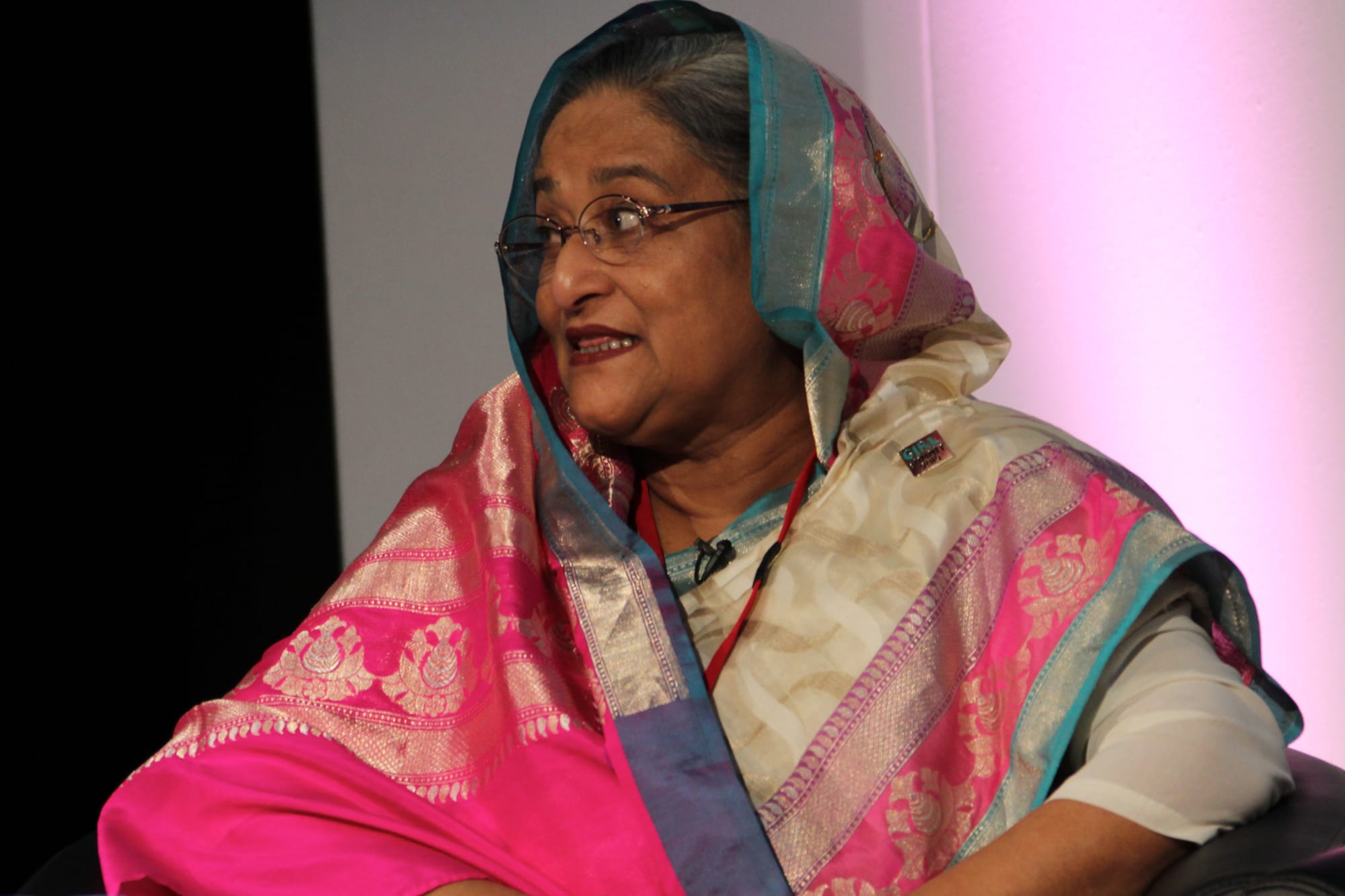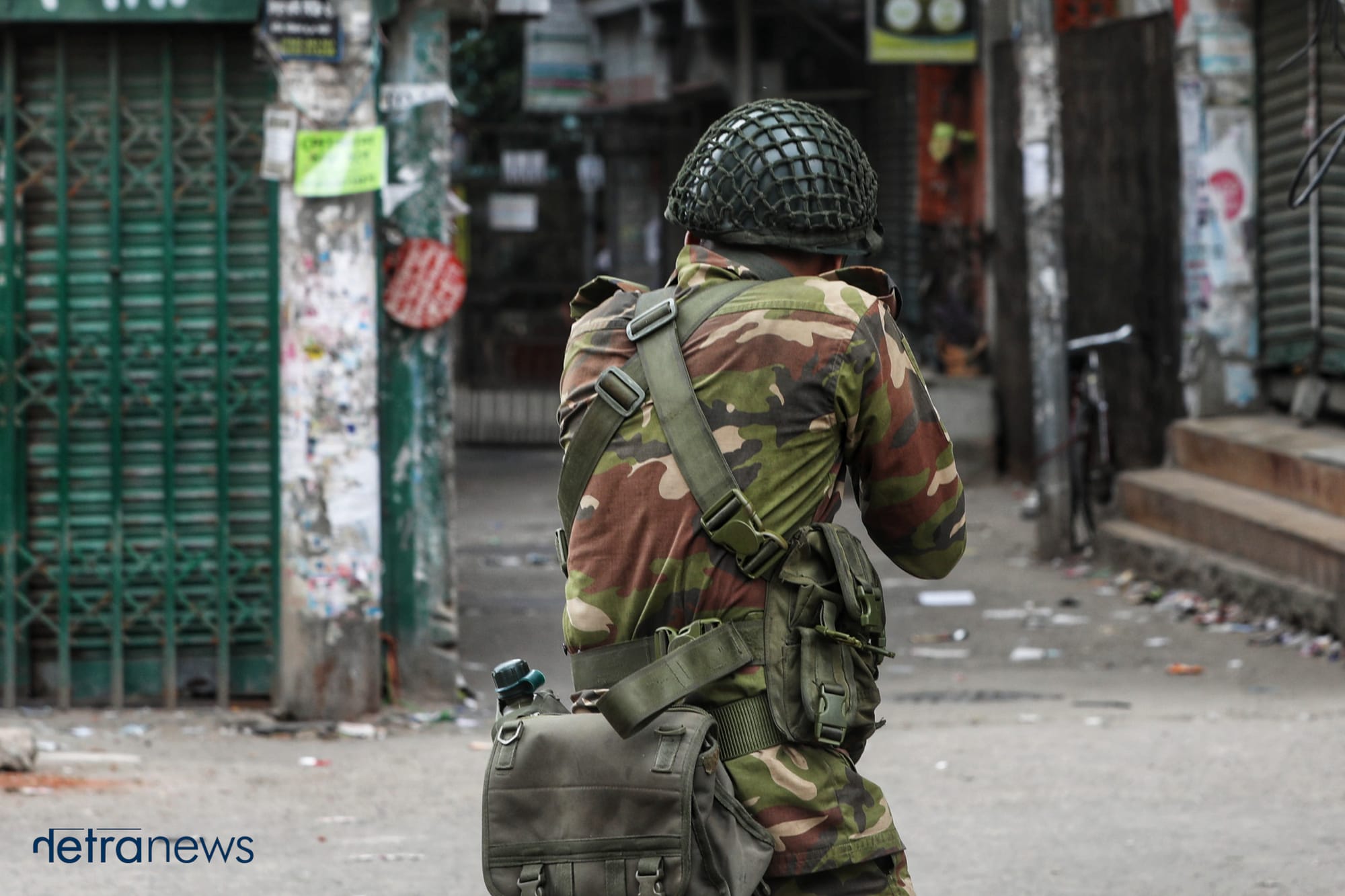Hasina puts on brave face as anxiety grows
With her control under question, Bangladesh’s Prime Minister Sheikh Hasina attempts to reassert control

Prime Minister Sheikh Hasina sought to reassure her allies on Monday as she navigates the biggest political crisis in her 15 years of uninterrupted rule, one that critics say is of her own making.
She summoned a group of business tycoons to her office on Monday as unease grows in the export-dependent economy over a prolonged internet shutdown and nationwide transportation blackout.
“We have already managed to bring it under considerable control,” she reassured the businessmen. “The situation will gradually improve further. As it gets better, the curfew will also be relaxed.”
For her political opponents, whom she unmistakably blames for the latest crisis, Hasina promised “even more stringent actions.”
“It won’t be let go so easily this time,” she added.
She described how her government demonstrated tolerance despite students at Dhaka University insulting female leaders of the Chhatra League on campus and ransacking the rooms of some male members, who were forced to escape their dormitories. However, she refrained from blaming students for the violence, a charge she reserves for the opposition instead.

In a sometimes slurring voice, the 76-year-old blamed the Bangladesh Nationalist Party (BNP) and its allies squarely for the violence during the clashes, asserting that ordinary students “could not have committed such destruction,” a talking point increasingly promoted by her surrogates.
As many as 174 people have died as a result of the government’s ferocious crackdown on the student protests that escalated into civil unrest, according to a count by Daily Prothom Alo, a leading vernacular newspaper that notes the number could be much higher due to government restrictions. A Western diplomatic source estimates the number of injured at 10,000.
Hasina did not refer to any of the students killed during the protest in her first public remarks since her sombre primetime TV appearance last week, which proved insufficient to assuage tensions.
The foreign ministry in Dhaka, meanwhile, invited foreign diplomats to a briefing on Sunday, during which the US ambassador Peter Haas criticised authorities over the killings, according to Agence France-Presse (AFP).
Haas spoke first as authorities opened the floor after playing a 10-minute clip made by Somoy TV, a pro-government TV station, according to a diplomatic source. “I am surprised you did not show the footage of police firing at unarmed protesters,” he quipped, according to AFP.
The army chief, General Waker-uz-Zaman, inspected troops outside the National Parliament buildings on Monday, with our reporters on the ground noting an increased presence of soldiers.
General Waker-uz-Zaman, a relative of Hasina’s, met the prime minister on Sunday. A day later, he boasted that his troops had improved the situation within 48 hours of their deployment.
In a first, video clips reviewed by a Netra News contributor showed troops shooting at protesters on Saturday in Dhaka, an escalation from their earlier strategy of restraint.
At Dhaka Medical College Hospital, a key barometer of Bangladesh’s political violence, the arrival of injured and bullet-ridden people declined sharply on Monday. A reporter posted there saw only four bullet-ridden bodies on Monday.

Rickshaws and auto-rickshaws, operated by the low-income working class, returned to the roads in the capital despite the curfew, but long-distance transport remains suspended.
What contributed to the apparent calm was the decision by a key student leader to pause their protests. Nahid Islam, who returned from a disappearance during which he suffered torture, suspended the students’ “shutdown protests” for two days.
He demanded that during this period, the government withdraw the curfew, restore the internet, reopen universities, and stop targeting student protesters.
It is unlikely that the government will comply with this call, as officials say the curfew will likely continue for a few more days.
Police in the Bangladesh capital said at least 532 people, including senior leaders of the main opposition BNP and the largest Islamist party, Jamaat-e-Islami, were arrested.
At least 61,000 people have been charged with violence over the unrest, according to Prothom Alo. Most of those charged are unidentified, a prelude to a looming legal crackdown ahead.